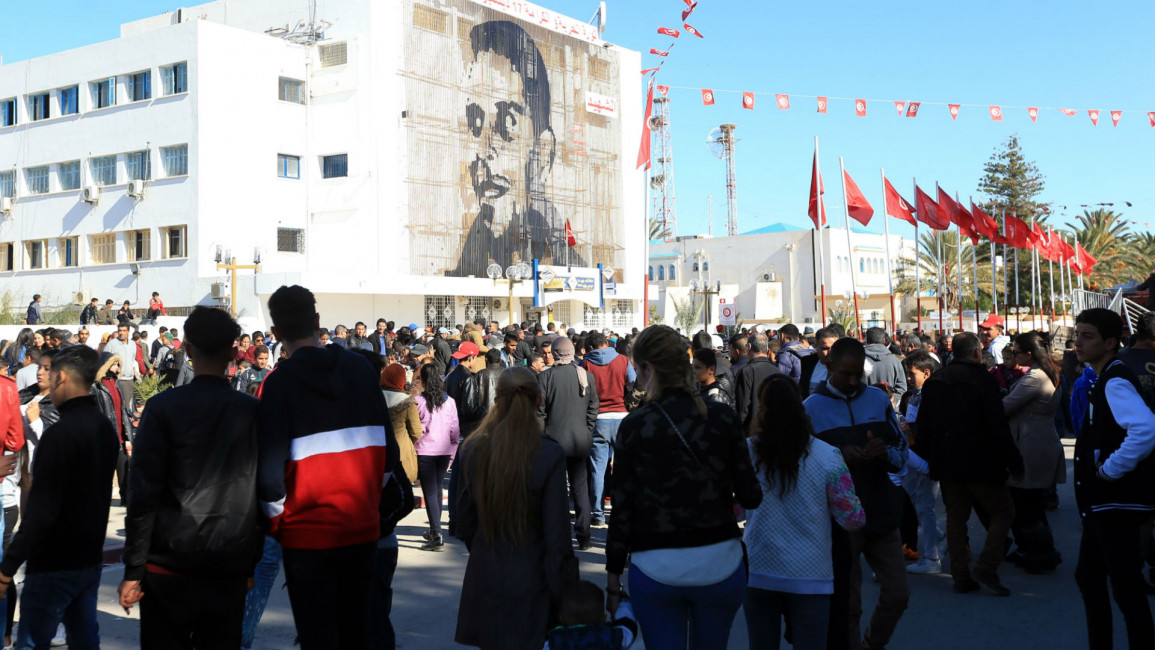Tunisia arrests protesters amid clashes in 'Arab Spring birthplace' Sidi Bouzid
Clashes in Jelma started after the death last Friday of 25-year-old Abdelwahed Hablani who set himself on fire in the centre of the impoverished town in desperation over his economic woes.
Hablani, who found occasional work as a casual labourer, was buried on Saturday in Jelma, near Bouazizi's home city of Sidi Bouzid in Tunisia's deprived interior.
Angry residents blocked roads and attacked police on Saturday and Sunday nights, interior ministry spokesman Khaled Hayouni told AFP.
"Youths aged between 11 and 18 attacked law enforcement officers during the night, throwing stones at them and wounding 20 officers," Hayouni said. Security forces dispersed the youths with tear gas.
Elsewhere in the region, several hundred people burned tyres and blocked roads, an AFP correspondent said.
On Tuesday, the Tunisian Forum for Economic and Social Rights expressed "deep concern at the state of social tension in Jelma".
Read more: Can Tunisia survive foreign attempts to derail its democracy?
This showed the failure of successive governments to devise concrete solutions to unemployment and lack of development in Tunisia's interior, the NGO said.
"Ignoring social demands" and reliance on security forces to respond was increasing tension, it warned, calling for a "radical change in economic and social policies".
In December 2010, the self-immolation of street vendor Mohamed Bouazizi in Sidi Bouzid sparked the Arab Spring uprisings.
Since Bouazizi's death, several other young Tunisian men have set themselves alight in protest against the country's continuing economic difficulties.
Tunisia held free parliamentary and presidential elections in September and October this year. Economic frustrations and the perceived failure of former governments to provide adequate public services led voters to largely eschew the major parties.
Similar concerns have motivated mass protest movements this year in Lebanon and Iraq.
Protests erupted in Iraq in early October, with the mostly young and Shia population of the capital and country's south voicing anger with endemic corruption and economic mismanagement.
The demonstrations have swollen in size, scope and fury since then, with protesters targeting symbols of Iranian influence and calling for a new government.
Iraqis have been faced by a brutal crackdown in what amounts to the country's biggest crisis since Islamic State group militants seized large swathes of the country five years ago. More than 420 people killed and 15,000 wounded so far, according to an AFP tally.
Later in October, protests against a proposed tax on WhatsApp calls in Lebanon ballooned into an unprecedented unaligned mass movement calling for an end to corruption, poor public services, financial mismanagement, sectarianism and an entrenched political elite.
Follow us on Twitter and Instagram to stay connected



